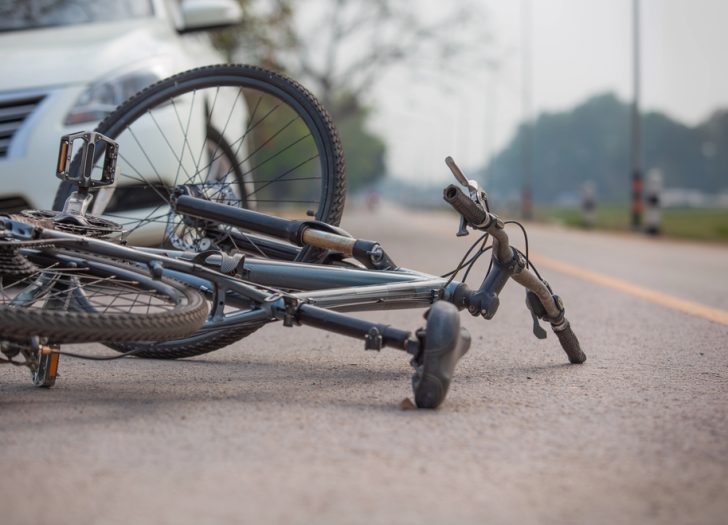In this revealing episode, host John Maher sits down with attorneys Rob Mazow and Kevin McCullough to explore the profound emotional impact of bicycle accidents. The discussion delves into common psychological challenges such as PTSD, anxiety, and persistent fear that can hinder a cyclist’s return to the road, even after physical injuries have healed. The experts explain how traumatic experiences affect personal relationships and daily life, and they highlight the importance of addressing mental health through therapy, counseling, and self-care practices. Additionally, they discuss how emotional injuries play a role in insurance claims and compensation, stressing the need for proper documentation and professional support. Whether you’re a cyclist coping with the aftermath of a crash or someone interested in understanding the full spectrum of accident recovery, this episode offers vital insights to help you navigate the road to emotional healing.
John Maher: Hi, I am John Maher and I’m here today with Rob Mazow and Kevin McCullough of the Law Office of Mazow McCullough. Today we’re talking about the emotional impact of bicycle accidents. Welcome, Rob and Kevin.
Kevin McCullough: Thanks, John.
Robert Mazow: Thank you, John.
What are Common Emotional Issues After A Bicycle Accident?
Maher: Rob, beyond physical injuries, what are some of the common emotional and psychological effects that bicycle accident victims experience?
Mazow: John, what tends to happen on occasion is a bicyclist, even an experienced bicyclist who’s ridden for years and is very comfortable on the road, if they’re in a serious accident, they’re cut off by a car or a door opens in their way and they’re injured as a result, we see PTSD. We see it taking a long time, if at all, for these bicyclists to get back on the road because they tell us that they close their eyes and they can see the impact, or they’re lying in bed and they’re trying to go to sleep and this fear of being struck overwhelms them and it seeps into their personal lives. It affects their relationships with their friends, with their family.
Even if they were injured as a bicyclist, but later on they’re driving in their car, they’re particularly anxious because they just have had this terrible experience of somebody coming out of nowhere and hitting them. And it can affect them for a long time.
Sometimes it affects them for a significantly long time, and they have to get some mental health therapy. They have to perhaps get some medication to help calm themselves. They have to talk to a professional to try to get themselves through this PTSD, this emotional trauma from being hurt.
The physical injuries are one thing. Most physical injuries do end up healing in some regards, but the mental hangs with them and it can really have a dramatic effect. Sometimes even with concussions, which we see a lot of in bicycle crashes, concussions can manifest in a lot of different ways, and sometimes it affects a person’s emotions and it causes headaches. It affects a person’s ability to get through the day. These things can last for years, so we’re not just talking about broken bones here, we’re talking about mental health, PTSD, anxiety as a result of these bicycle crashes.
What Resources are Available for Cyclists Seeking Emotional Support After an Accident?
Maher: Are there any resources that are available for cyclists to seek emotional support and counseling after an accident?
McCullough: Absolutely, John. The resources available for individuals suffering a traumatic event or an injury, certainly from a bicycle versus motor vehicle, can be available in many different ways. Oftentimes, it’s the medical treatment that you receive, being sure that you’re honest with yourself and your doctors. And what I mean by that is we have this mentality and it’s natural that, “Suck it up, I’m going to suffer through it,” or, “I’m going to be tough and get through it”.
And we see that so often with these emotional injuries or the fear and the anxiety. It’s something that I broke my arm, I went to the doctor, the orthopedic said I’m healed, and now how do I deal with the nightmares at night? The fear of going down that roadway and whether I’m walking or on a bicycle or a car.
It is so important to express that to your primary care physician and your doctors so that you can get those resources because if an injured party doesn’t express that and they’re not willing to talk about it, you really can’t use those resources or recover. Talking about it segues into those different resources and methods of recovery and getting through that.
And everyone is different. Sometimes we see individuals going to a counselor or therapist to talk it through and to continue to talk it through and to realize after that repetition that you’ve lived through that and you’re okay now and you can move on and you can do it. Sometimes we hear clients are advised to journal, to write down how they’re feeling when they feel a certain way, if there are any triggering events or things that make them feel worse or more anxious.
And writing it down and seeing it helps in that recovery process. And oftentimes, journaling leads to not only seeing what those triggers are and knowing what to avoid or what makes you feel better, it naturally leads into this recovery that’s documented that you can see and you’re getting better from what you’re documenting, and oftentimes that helps in that recovery process.
Unfortunately, depending upon the severity of an accident, someone’s anxiety or a head trauma, they may be prescribed medication to help. Those are things that will never happen or be available to someone suffering through this traumatic event if they don’t talk about it and they don’t share that with the doctors.
We live in a society where there’s so much available to us for medical treatment, for recovery groups, and different methods and things that help assist with that recovery. But it starts with feeling comfortable enough to mention it and to talk about it and to share what is initially could be perceived as a weakness, but you have to open that door and we encourage our clients to be fully honest with their medical providers, not just with the headaches going away and, “My arm is back to normal. I’m just as strong.” It’s how you’re feeling and how you’re sleeping and working through the emotional aspect of it.
And John, oftentimes that is more important than the physical injury because it’s so much harder to track, and doing all of those things helps in the recovery. It helps to document those injuries and what you have lived through for the last year or two when we do go to settle the case with the insurance company. The therapeutic aspect of it for our clients is great and it’s primary, but it also helps with myself, my partner in our office, having that documentation to seek and recover the full compensation for everything that the clients have gone through, both physical and emotional.
How Emotional Issues Impact Insurance Payouts
Maher: Can you talk about that a little bit more in terms of the insurance companies and maybe getting compensation if you do have to visit not just a physical doctor, but also a therapist or something like that, as part of your recovery process?
Mazow: Sometimes, oftentimes, people who were injured don’t even think or know that something like that, something like an emotional injury could be compensated. They’re thinking about the sprains and the strains and the broken bones and those issues. But we talk with our clients and sometimes the clients don’t even share with us until sometimes down the road when they’re like, “I’m driving along and I just can’t get back on my bike, and I’m struggling and it’s affecting my relationship with my spouse and my children.”
And we say, “You understand that you should be talking with somebody. Start with your primary care doctor. See if you can get a recommendation for a mental health counselor because first and foremost, it’s important for your own mental health to do so, but also you should be aware that that is something that is compensable.” And when I say compensable, I mean that is something that you can make as part of your claim, part of your injury claim to the insurance company. Not only lost wages, not only medical bills, not only pain and suffering, but the emotional impact of this.
Now, the insurance companies will always push back on that. They will say, “Well, we don’t believe it.” And so, we tell our clients, “Look it, we need to document this. If you’re feeling this, you need to talk to somebody. You need to document it.” And by document, I mean get some treatment, talk to somebody about it, and they have to be comfortable.
And we always say this to them. We say, “Look it, regardless of your case, regardless of whatever compensation it may or may not be, get yourself some counseling.” And they might not be comfortable with sharing that information to us or to the insurance, and that’s fine. We tell them, “We don’t have to. It won’t be part of your claim. You won’t be able to include that if you’re not comfortable sharing your mental health treatment records but go out and get that help. If you do get it and you are comfortable with sharing it, then we will include that when it comes time to sitting down with the insurance company and talking about settling it.”
Or if we have to go to a trial, we will use those records or we will call the mental health counselor to testify as to what their experience is and what their opinion is as to what happened with our client, what the diagnosis might be if it’s PTSD, whether it’s related to the crash and what can be done about it, what their future might look like. There’s many components that are involved in it, but it is certainly part of a claims process that can and should be made if it’s there.
McCullough: John, this is an extremely important point and to educate people of what’s available to them for compensation as part of an injury claim, including a bicyclist injured under insurance coverage. It is oftentimes something overlooked in that the belief and perception is, “I was riding my bicycle, I was injured by this car, and I’m going to hire this attorney to help me with my physical injuries, my medical bills, my lost wages.”
And oftentimes, whether it’s they don’t want to talk about an emotional injury or an anxiety or trauma, oftentimes they just don’t know that it’s recoverable against the insurance company. And it is important for us, throughout that process, when we meet with a client and we advise them of what their options are, and they ultimately retain our office to move forward with a claim that we continue to reiterate that to them, that if it’s a component of your damages that you’ve suffered here and that you’re dealing with, you need to document it.
You need to let me know. We need to make sure that you get better. And then, we use that information to present to the insurance company because absolutely you are entitled to be compensated for the emotional damage, not just the physical damage.
What we see frequently, talking about these emotional damages, anxiety, the typical situation where a client doesn’t bring that to our attention early on is a client will call and they’ll want to come in to talk to see how things are going, what the status of their claim is, and they may say, “And is it okay if I bring my spouse?”
Absolutely. We encourage that because we’re sharing information. The spouse will inevitably come in and immediately the spouse will pull me aside and say, “Kevin, I need to let you know, something’s different, something’s off. My husband hasn’t mentioned it to you, but I’m seeing this at home. It’s word mismanagement or word association that’s off. We had dinner last night and he said, ‘Can you pass me the pepper?’, and I handed him the pepper and he was really trying to get the fork.”
With head injuries and head trauma and the emotional injuries and the anxiety that comes out of that, not only do we need to educate the clients that it’s recoverable, but it’s bringing it to our attention that oftentimes they may not even notice it to bring it to our attention. And it is critical to share that, what’s available for coverage and compensation with a spouse or family member, because they can be the ones that notice it, that bring it to our attention.
We talk about it together and then everyone is on the same page with, yes, this has been since the accident. We need to let the medical providers know, as I mentioned earlier, to get the medical treatment that you need. But this all flows from the sharing of information and the willingness to have open discussions and to make sure that clients know what is available to them and what we could do to help them and to utilize us as a resource when fighting with that insurance company.
Maher: All right, those are really important considerations, Rob and Kevin, thanks again for speaking with me today.
McCullough: Thanks, John.
Mazow: Thank you, John.
Maher: And for more information, you can visit the Mazow McCullough website at helpinginjured.com or call 978-744-8000.











